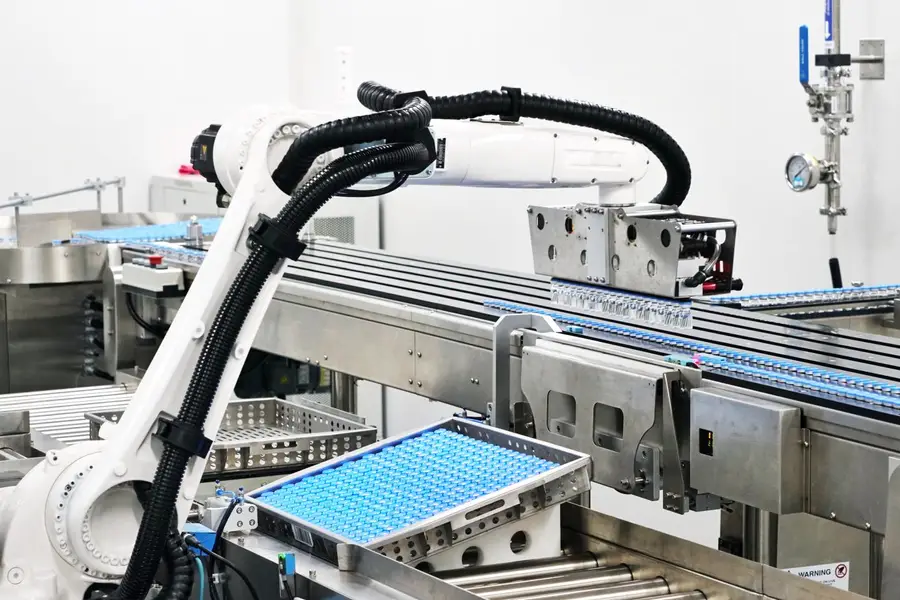Will Trump’s drug order put the brakes on China’s overseas pharma drive?

The U.S. president has promised to reduce prescription drug prices by 30% to 80% for Americans, insisting they are entitled to prices paid in other developed countries
Key Takeaways:
- Pharma company stocks tumbled after Donald Trump announced a plan to reduce U.S. drug prices, but regained some ground on belief the plan would be hard to implement
- Drug prices are expected to decline in the U.S. over the longer term, which could deal a setback to the global aspirations of Chinese innovative drug makers
By Molly Wen
On May 12, U.S. president Donald Trump dropped a bomb on the global pharmaceutical market with his latest executive order aimed at bringing down drug prices, sending shockwaves through global stock markets. But while many companies later recovered some ground, Chinese innovative drug makers didn’t fare quite as well, signaling concerns about their plans to expand abroad in search of fatter margins than they get at home.
Trump’s executive order that created the waves insisted that U.S. patients are entitled to Most Favored Nation (MFN) pricing for their drugs, meaning the lowest prices available in developed countries. He instructed the U.S. Department of Health and Human Services (HHS) to establish direct-sales channels to cut out middlemen that tend to raise prices, and consider importing drugs directly from lower-priced developed markets. His order said HHS will send MFN target prices to pharmaceutical manufacturers within 30 days and will implement mandatory MFN pricing if manufacturers do not adjust prices themselves.
Trump unveiled the plan on May 11 on his social media account a day before the executive order. In the post, he claimed that a 30% to 80% price reduction for prescription drugs in the U.S. was on the way. That sparked a selloff for Chinese innovative drug stocks even before the official announcement, particularly for U.S.-exposed players like BeiGene (688235.SH; 6160.HK; ONC.US), Shanghai Junshi Biosciences (1877.HK; 688180.SH) and Hutchmed (HCM.US; 0013.HK; HCM.L), whose Hong Kong-listed stocks tumbled 8.97%, 2.03% and 3.56%, respectively, on May 12.
Despite the selloff, many stocks clawed back some of the losses after details of the order were unveiled. Major multinationals rebounded the fastest, with names like Merck & Co. (MRK.US), Eli Lilly (LLY.US), Pfizer (PFE.US) and Novo Nordisk (NVO.US) up between 3% and 6% on May 12. BeiGene’s U.S.-traded shares were far more muted with just a 0.54% gain that day, while Hutchmed’s U.S. shares continued to sag with a 2.04% decline.
The big global names rebounded on belief that Trump’s order lacks clear guidelines, and thus implementation will be challenging. Citic Securities published a research note on the topic, pointing to the sizable gap between suggested retail prices set by drugmakers and the price an insurance provider pays. It said the latter might not change much even if the suggested retail price is adjusted down, thus limiting the impact on companies’ revenue. Trump signed a similar executive order in September 2020 during his first term, also aiming to bring down drug prices. But it was never implemented due to strong industry opposition.
Long-term impact unknown
Despite the daunting implementation difficulties and speculation that the move was more political stunt than serious attempt to reduce prices, falling drug prices in the U.S. is clearly a longer-term trend. Reflecting that, the prices of 10 drugs fell 76% under the influence of the Inflation Reduction Act during the recent term of previous President Joe Biden.
According to research by RAND Corp., prices for originally developed prescription drugs in the U.S. were 4.22 times higher in 2022 than in other developed countries. And though such products only accounted for 7% of prescription drugs in the U.S., they represented up to 87% of the money spent on pharmaceuticals. Many innovative drugs developed by Chinese companies have followed a similar pricing strategy, often selling their products for much more in the U.S. than for the same products in China.
A good example is BeiGene, which depends on the U.S. market for half of its revenue. It prices its BTK inhibitor Zanubrutinib in the U.S. at $12,935 for 120 units. But 64 units in China costs just 5440 yuan ($755) under the country’s national medical insurance plan, equaling just 10% of the U.S. pricing per unit. With such a big gap in its global pricing system, the company is likely to take a major hit if Trump’s policy is actually implemented.
Chinese drug makers reliant on foreign partners to sell their products overseas are also vulnerable. For example, Shanghai Junshi Biosciences introduced its Toripalimab monoclonal antibody to the U.S. in 2023 via a partnership with Coherus BioSciences. Under their arrangement, Junshi provides the drug and pockets a certain percentage of sales. Thus, the company will also face revenue and profit squeezes if prices of such PD-1 drugs are also forced down through price negotiations.
Drugs covered by China’s national medical insurance aren’t allowed to charge high prices in the domestic market, and probably couldn’t make much money even if they did since Chinese patients are much less affluent than their Western counterparts. That means that selling overseas, especially in the U.S., is a pivotal pathway for Chinese innovative drug makers to become profitable and boost their valuations.
If prices of innovative drugs in the U.S. fall markedly, as the executive order envisions, these Chinese companies might have to rethink their overseas plans and recalibrate their roadmaps accordingly. Meanwhile, they may also earn less from licensing deals and see their valuations decline. That means investors in China’s drug segment will need to hone their own vision on the extent to which the policy might be implemented, and pay close attention to the latest developments before investing in any stocks with current or expected U.S. exposure.
To subscribe to Bamboo Works weekly free newsletter, click here




